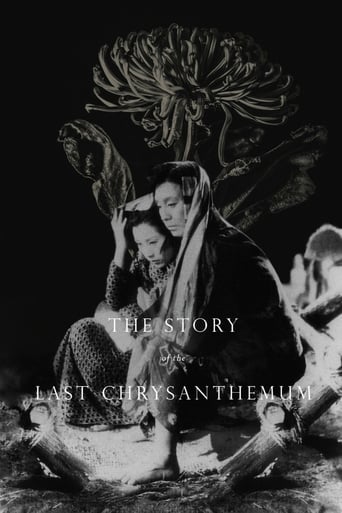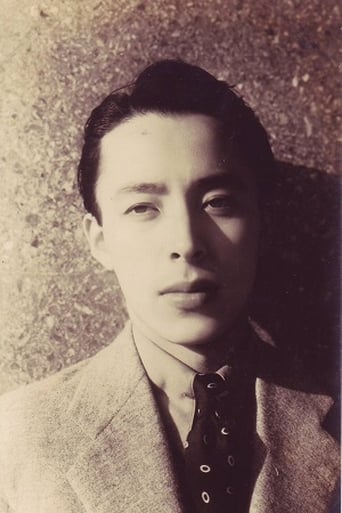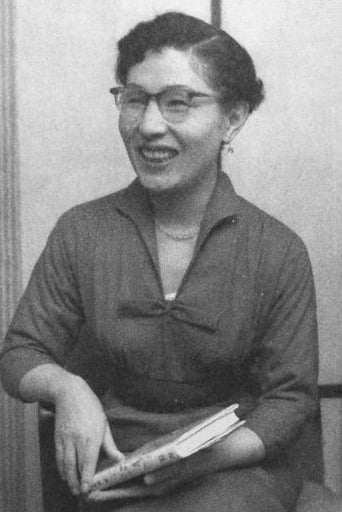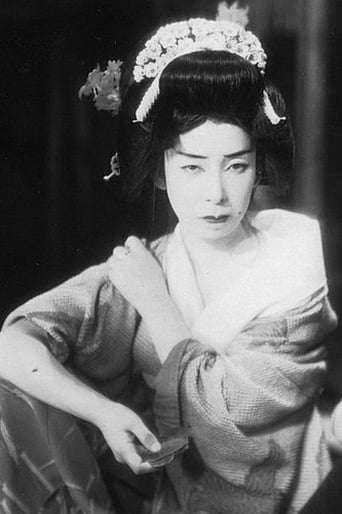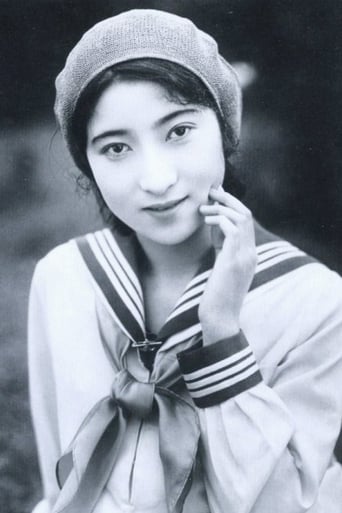CommentsXp
Best movie ever!
Lollivan
It's the kind of movie you'll want to see a second time with someone who hasn't seen it yet, to remember what it was like to watch it for the first time.
Myron Clemons
A film of deceptively outspoken contemporary relevance, this is cinema at its most alert, alarming and alive.
Brennan Camacho
Mostly, the movie is committed to the value of a good time.
avik-basu1889
The cinema of Kenji Mizoguchi certainly has its share of uninhibited feminism, but it also has its adequate share of realism. He has portrayed Japanese women, their roles and plight in traditional and orthodox Japanese society in variously diverse ways. But he never shied away from making the viewer confront the tough facts and compromise the reality of female oppression, just for the sake of happy endings. His female characters do suffer. The character of Otoku in 'The Story of the Last Chrysanthemum' is an angelic woman who pretty much sacrifices everything for her lover and in the end gets nothing in return. This constant suffering of Otoku has actually made a number reviewers criticise the film and question its agenda. But I disagree with the detractors of the film because for me, the suffering of Otoku in spite of being selfless to a fault represents Mizoguchi's criticism of society as a whole, criticism of a society which oppresses women and enslaves them. A woman can be angelic and downright subservient like Otoku, or she can be abrasive and self-serving like Ayako in 'Osaka Elegy', the patriarchal Japanese society in the end will crush her.The camera is incredibly fluid and the movement are at times very symmetrical with a pattern to them. This symmetry of camera movement within the same scene or separate scenes reminded me of the films and camera movements of Max Ophüls. Although the blu ray print isn't that great in comparison to restored prints of other films of the same era, one can't help but notice the incredible attention to detail when it comes to the sets and how Mizoguchi uses them with his camera. There is a very noticeable reluctance to use close-up shots, which is interesting. But for the most remarkable aspect of the film in terms of visual technique is the reliance on numerous extended unbroken, long takes which are just incredibly executed and choreographed. Mizoguchi's use of space within a particular frame is genuinely incredible.The romance between Kikunosuke and Otoku is given a layered and complex treatment by Mizoguchi. Their relationship persists for numerous years and we see the gradual changes in their relationship dynamics. Mizoguchi ornaments the film with beautiful singular moments of humanism and emotions which is scattered throughout the film. Moments like Otoku folding Kikunosuke's jacket without being asked to, Kikunosuke's brother not recognising him, Otoku sitting alone in her room in the dark,etc. are moments that will touch the heart of every sensitive viewer.I don't think 'The Story of the Last Chrysanthemum' is a perfect film. There are aspects to the film that are a bit too simplistic and a few scenes are stretched out a bit too long for my liking. But having said that, I still consider it to be a special film. One can't help but admire the technical brilliance on show. Mizoguchi's direction is sensitive, subtle and yet complicated in the way he composes his shots and uses his sets. The film has a feminist agenda with its heart in the right place made by one of the masters of world cinema which makes it an easy recommendation.
lasttimeisaw
I am a tyro in view of Japanese cinema (one reason why I often feel ashamed to call myself a cinema buff), and among Mizoguchi's filmography, my only previous viewing is his later epic saga SANSHO THE BAILIFF (1954, 7/10), a haunting revenge tale with a cogent message about sacrifice and redemption, whereas in THE STORY OF THE LAST CHRYSANTHEMUMS, which is shot much earlier, pre-WWII, the same ideas have been incubated through a love story barred by the class gulf, Otoku (Mori) is a symbol of devotion and forbearance and Kikunosuke (Hanayagi) is a man of moral integrity, occasionally under the affliction of hardship, he is worn out and evinces rather disappointing male chauvinism, but she accepts and assimilates all these negative effluvia until the ultimate sacrifice, as long as Kikunosuke can regain his social status and fame through his bona-fide acting after years of studying and training. What a role model couple, depicted as the kernel of the mentality of Japan at that time, behind every successful man there is a capable wife, who doesn't has her own ranking or vocation, but should be fully devoted and (if lucky) intelligent to assist her husband (maybe now is still the same), a standpoint may sound outdated and even putrid nowadays. At the first scene, the novel milieu of Kabuki brings immediate exotic flavor to foreign viewers, but it is hard to be truly appreciated in an outsider's eyes, I can not tell the qualitative leap of Kikunosuke's acting skill, plus the orbit of the plot is stereotyped and take the twist and turn for granted, Hanayagi and Mori's acting is too hammy for my taste as well. But impressively the film contrives outstanding mise en scène, the camera never dare to be too near its characters, as we watch from a distance, everything is presented in an implicit rhythm with gracefulness and subtlety, which wholesomely leads its viewers through the voyage of a tearjerker behind the times with its mellifluous soundtrack sets the mood. I might feel a bit disheartened about this film, but it never too late to excavate the treasure of Japanese cinema, so I will keep up and continue to divulge my true feelings after watching them.PS: one interesting note, I find it rather peculiar to put salt on watermelon, at least not in my culture, the mixed salty and sugary flavor doesn't seem to be scrumptious to me, anyone who has the experience can give an explanation?
Boba_Fett1138
This is one real powerful and effectively directed movie, that also is fine looking and features some fine acting performances.It's a quite long movie, which is not really due to its story but more in the way its sequences are handled. Director Kenji Mizoguchi maintains a very slow pace with many long static scenes in it, in which the camera doesn't move and there are no in between cuts. It does work out well though for the movie. It makes the movie visually beautiful to look at but also makes the story more powerful. It's a real fine directed movie, for which the director can not be praised enough. He handles the movie and its story really well and effectively.The story features some typical and important Japanese themes in it, such as honor and family. Fans of Japanese cinema or Japanese culture will surely get a blast out of this movie. The entire story is set in the Japan, or Tokyo to be precise, of 1885. This means that the movie is also being filled by some wonderful looking sets and costumes.It's also a pretty well acted movie. Normally I'm not a too big fan of acting in Asian movies but this movie feature some rather realistic performance, that don't ever go over-the-top, which also is a real accomplishment for a '30's movie in general.Mostly due to its directing approach the movie works out so well and effectively. Because lets be honest, the story itself is actually quite simple and also not something that hasn't done before in any way. It's the reason why director Kenji Mizoguchi is still so loved and appreciated by many, even now, well over 50 years after his death. The themes are all handled well and despite being not too original, it all works out still well and refreshing.But it's not just a style for everybody though. I can understand that some people might not like watching this movie, since it's pace is so slow and overall cinematic style is so outdated now days. Nevertheless cinematic lovers, or just fans of Japanese cinema, should be able to really appreciate this movie.9/10http://bobafett1138.blogspot.com/
MartinHafer
I wish I spoke fluent Japanese--then I am sure I could have enjoyed the movie so much more. That's because this movie had horrible subtitles and often sentences or more were simply left untranslated or 50 words in Japanese were distilled down to only 3 or 4 words. In essence, the translators were very lazy and did a terrible job. Some might not mind this, but since I am a very avid fan of Japanese films it seriously detracted from the experience. This does NOT mean it is unwatchable or you should avoid it. In fact, if anyone knows of a better version available to Western audiences, let me know.The plot itself seems very familiar and is reminiscent of some other films, as its main ideas are respect for your elders and unrequited love. The main character is madly in love with his step-brother's nursemaid and the family strongly opposes it. I don't really think I need to divulge more but felt that the actors did a fine job and the story itself was interesting.UPDATE: There is a new DVD version from Criterion and I assume it's much better than the DVD I saw. Criterion always seems to do good jobs with subtitles on their film releases.
